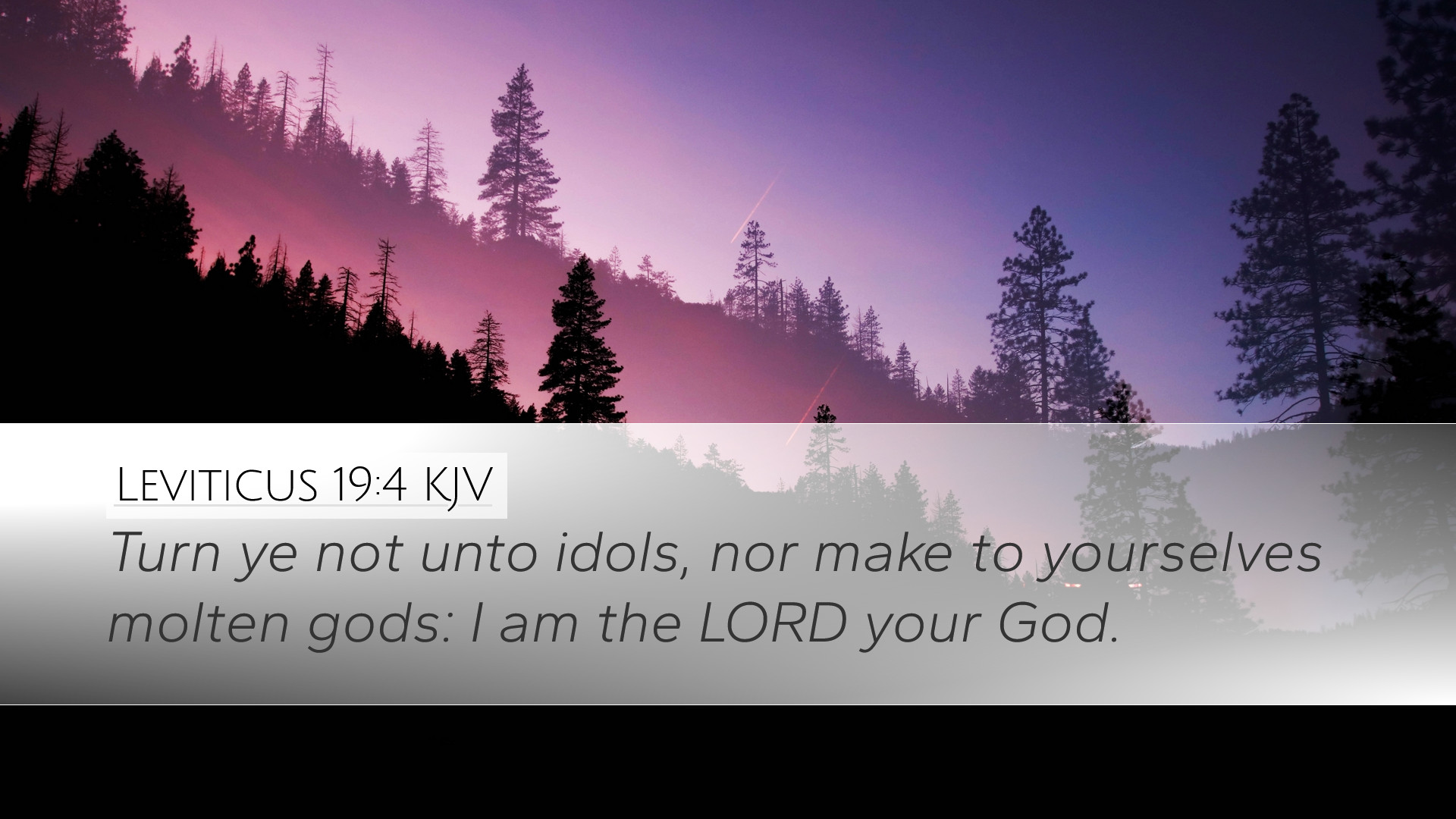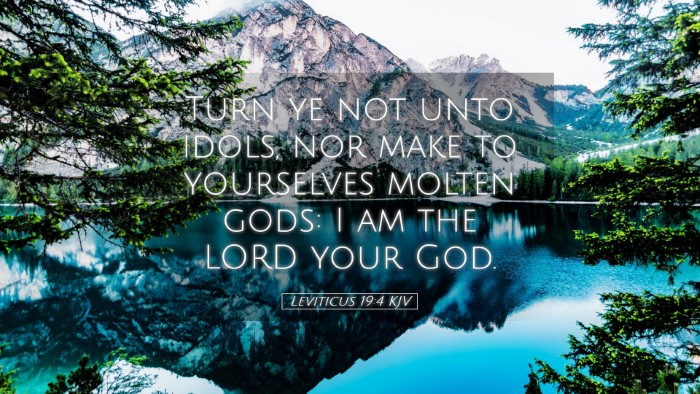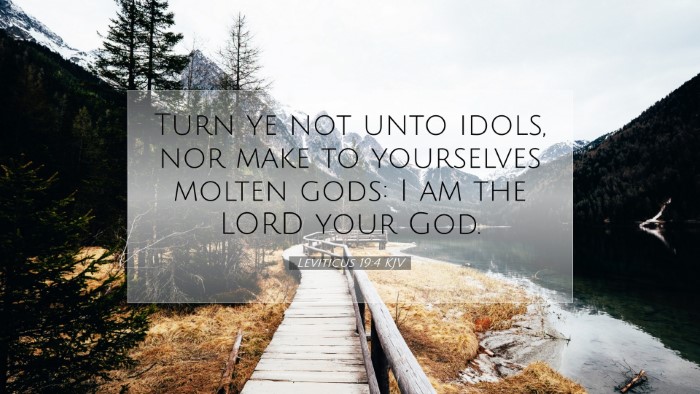Leviticus 19:4 Commentary
Verse Text: "Turn ye not unto idols, nor make to yourselves molten gods: I am the Lord your God." (Leviticus 19:4)
Introduction
This verse presents a clear prohibition against idolatry, emphasizing the exclusivity of worship due to God. It underscores a recurring theme in the Mosaic Law: the call to fidelity and singular devotion to Yahweh. In exploring this command, we draw insights from esteemed public domain commentaries.
Historical Context
Understanding the historical background is crucial for a proper interpretation. At the time this verse was given, the people of Israel were surrounded by cultures that practiced idol worship. These cultures not only created physical representations of their deities but also attributed to them power and significance that were solely reserved for the one true God.
Exegesis and Insights from Commentaries
Matthew Henry's Commentary
Matthew Henry emphasizes that this command is positioned amid a larger set of laws that call for holy living. He notes, “The prohibition is direct and stern: Turn not unto idols.” To Henry, the concern is not just about the physical act of worshiping idols but also about the spiritual ramifications of such actions, which can lead to a heart turning away from God. He elucidates that the Israelites should focus on God’s sovereignty, reiterating, “I am the Lord your God,” which is a declaration of His unique position as their sole deity.
Albert Barnes' Notes on the Bible
Albert Barnes offers additional detail regarding the nature of idols. He states that the Israelites were instructed to avoid the "molten gods," which refer to idols fashioned through metalwork. Barnes highlights the futility of such idols by pointing out their inability to represent the living God. By contrasting the living God with the lifeless idols, he stresses that any form of idolatry is in direct opposition to the nature of true worship, which acknowledges God’s active role in creation and the lives of His people.
Adam Clarke's Commentary
Adam Clarke delves deeper into the significance of idolatry in cultural context. He comments on the consequences of turning to idols, linking it to moral decay and spiritual deformation. Clarke indicates that idols distract believers from their covenant relationship with God, urging readers to recognize that true worship requires complete devotion. He posits, "Molten gods” were a common practice in the surrounding nations, marking a clear boundary for Israel’s identity and faithfulness to God.
Theological Implications
The command against idolatry remains relevant today. The church must grapple with modern forms of idolatry that divert attention and allegiance from God. This includes not just physical sacrifices to idols but also the prioritization of materialism, status, and personal ambitions that can function as modern-day idols.
Application for Believers
- Reflection on Priority: Believers are encouraged to reflect on what takes precedence in their lives. Are worldly pursuits overshadowing their devotion to God?
- Resilience Against Idolatry: It’s vital for congregations to cultivate resilience against cultural idols that may subtly infiltrate their communities.
- Renewal of Commitment: Through prayer and study, believers should renew their commitment to worship the one true God, acknowledging Him as the only source of life and sustenance.
Conclusion
The exhortation in Leviticus 19:4 against idolatry reinforces the timeless call for loyalty and worship due to God alone. The insights from commentaries by Matthew Henry, Albert Barnes, and Adam Clarke provide a well-rounded understanding of this verse, making clear the seriousness of this command and its implications for both ancient and modern believers. Thus, pastors, students, theologians, and Bible scholars can find rich meaning and application in this passage.


